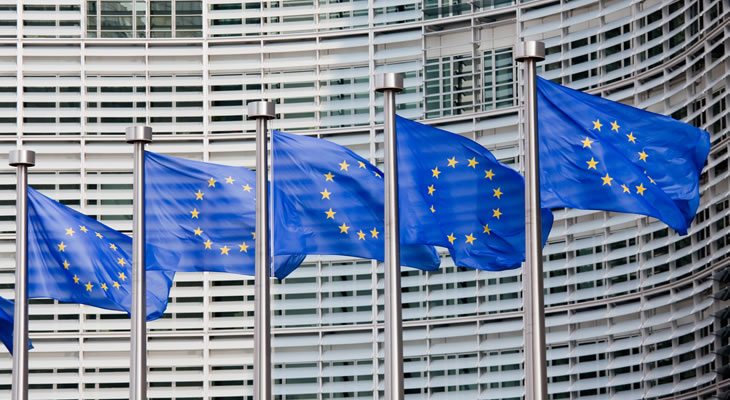While demand for Euro (EUR) exchange rates surged at the beginning of the week, market disappointment in the European Central Bank (ECB) indicated that there was still uncertainty in Eurozone markets and weighed on the common currency.
ECB Disappointments Sends EUR GBP Exchange Rate Lower
EUR GBP surged from 0.83 to 0.85, but by Friday was trending in the region of 0.84 again. ECB disappointment allowed the Pound to recover despite underwhelming UK data.
The success of pro-EU Emmanuel Macron in the first round of the French Presidential election last Sunday led to Euro strength early in the week.
Bets of a ‘Frexit’ plunged and many traders quickly began to expect a bright year was ahead for the Eurozone economy, with some suggesting that the European Central Bank could begin to show a more hawkish outlook as soon as this week.
However, the ECB meeting came and went with a familiar tone that left some EUR traders frustrated.
Any investors hoping that the bank would begin to edge towards tightening monetary policy or tapering back its quantitative easing (QE) program were disappointed as the bank left policy frozen and indicated it would continue to do so for some time.
In a Thursday press conference, ECB President Mario Draghi stated that growth in the bloc was getting stronger, but inflationary pressures were still subdued, necessitating looser monetary policy.
Draghi was careful to avoid talking politics, claiming that the outcome of the first round of the French Presidential election had had no effect on the bank’s discussions and decisions. This weighed on market excitement over Macron’s win and strong round two polling numbers.
French Election Result Key to Future Euro (EUR) Movement
Speaking of round two polling numbers, investors may have more reason to be anxious about Euro trade in the coming week.
The latest French election polls from Presitrack have seen Macron’s polling figures drop below 60 – to 59% versus anti-EU Marine Le Pen’s 41%. Last week, the same poll had Macron at 64%, so his falling polling data has left investors jittery.
However, the Pound has failed to recover and EUR GBP has trended above the week’s opening levels. This has been largely due to underwhelming UK data published throughout the week.
Friday’s data was the most disappointing, as Britain’s highly anticipated Q1 Gross Domestic Product (GDP) projection fell short of expectations.
UK growth was forecast to rise from 1.9% to 2.2% year-on-year, but only reached 2.1%. The quarter-on-quarter projection dropped below the expected 0.4%, from 0.7% to 0.3%.
Many analysts have responded to the news by ramping up forecasts that Britain’s economy may be in for a slowdown in 2017.
The primary reason for slower-than-expected growth was due to consumers cutting back on spending as inflation rises and wage growth slows, as many dovish economists forecast.
Despite long-term concerns about Britain’s economy, GBP investors are still more optimistic since the 8th of June UK general election was announced last week, with investors hoping Brexit negotiations will go better if there is a bigger Conservative majority in Parliament.
EUR/GBP Volatility Forecast as Macron Squares off with Le Pen
Next week is likely to see much more volatility in the Euro to Pound exchange rate, especially if Emmanuel Macron’s lead in French election polls continues to slip. The second round of the election will be held on the 7th of May leaving next week as the final market week before the fate of the Eurozone is potentially changed.
Next week’s Eurozone data includes Markit’s final April PMIs for the bloc, as well as March unemployment, Q1 growth projections and March retail sales.
The Euro is likely to drive EUR GBP movement, but Britain’s April PMIs from Markit could inspire Sterling trade.
At the time of writing, the Euro to Pound exchange rate trended in the region of 0.84. The Pound to Euro exchange rate traded at around 1.18.


Comments are closed.